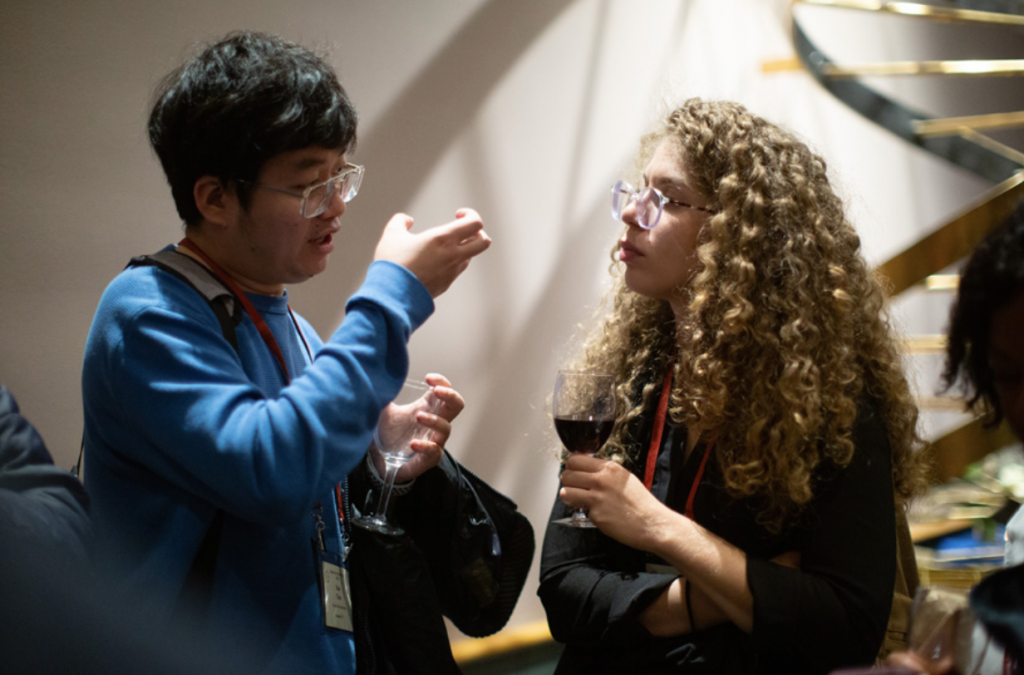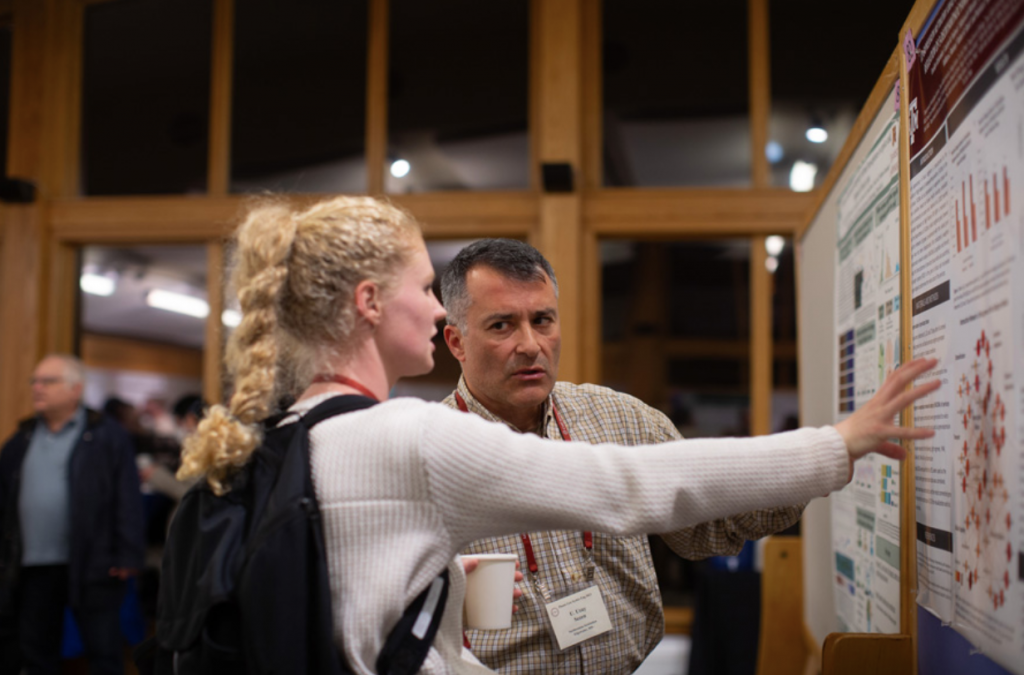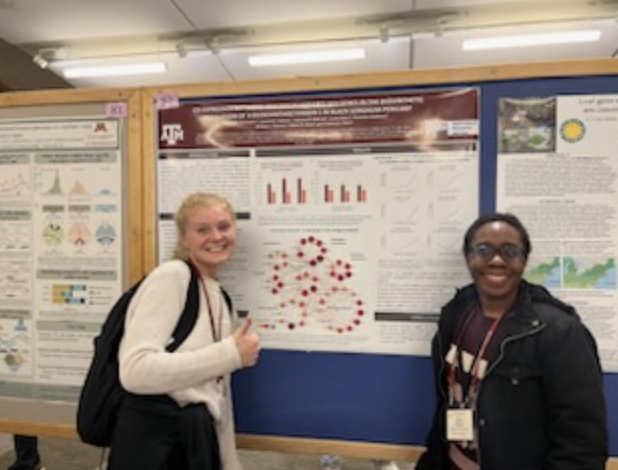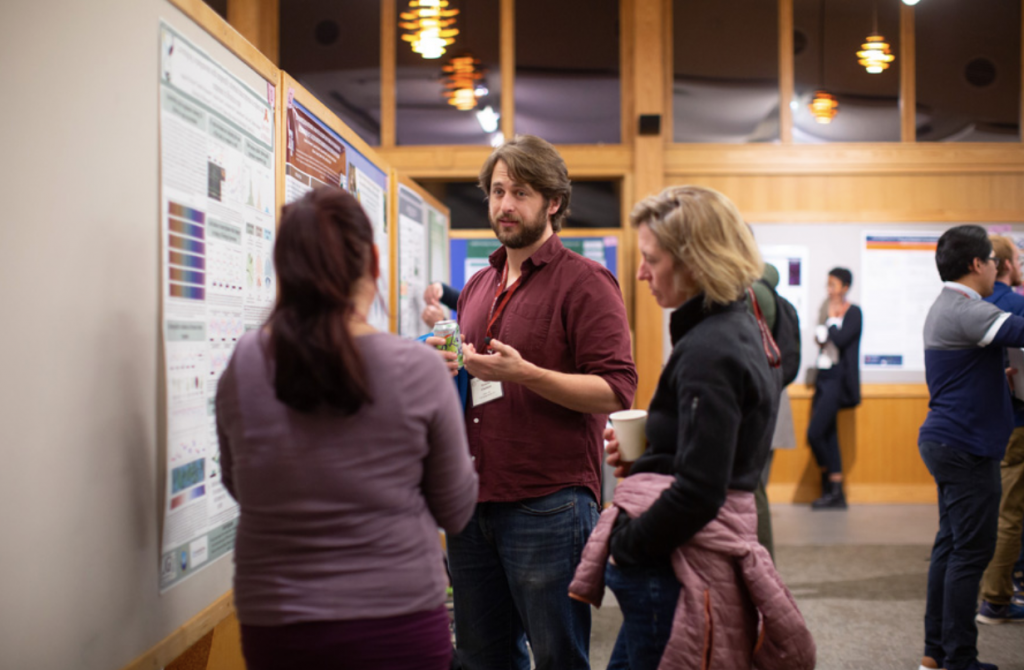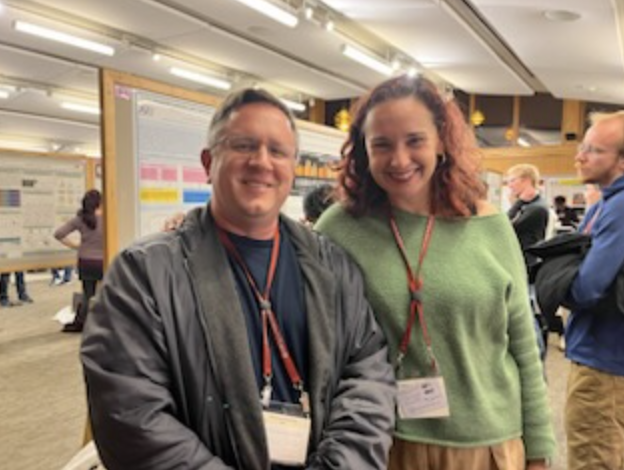Cold Spring Harbor Laboratory hosts the 13th Plant Genomes, Systems Biology and Engineering Conference
The 13th Plant Genomes, Systems Biology and Engineering meeting was held at Cold Spring Harbor Laboratory (CSHL) from November 29th to December 2nd, 2023. This event brought together over one hundred expert plant scientists, early career researchers, industry experts, and postgraduate students from multiple countries, fostering a global exchange of knowledge and perspectives. The meeting highlighted the latest advancements in the fields of plant development and productivity, natural products and synthetic biology, abiotic responses, genetic variation, nutrition, biotic stress and plant-plant relations.
As a keynote speaker, Professor Sarah O’Connor, from the Max Planck Institute for Chemical Ecology in Jena, Germany, shared her work on leveraging single-cell RNA-seq to understand the biosynthesis and regulation of medicinally and agronomically important plant-derived molecules. In her presentation, she provided a detailed insight into the methodologies employed to uncover the elucidation of the biosynthetic pathway of strychnine, a neurotoxin currently utilized as a rodent pesticide. The second keynote speaker, Professor Giles E.D. Oldroyd (University of Cambridge, UK) presented his work on arbuscular mycorrhiza (AMF). His lab focuses on understanding the symbiosis of plants with AMF and how such beneficial microbial associations can be harnessed to achieve sustainable productivity in agriculture.
In the development and productivity session, Professor Zachary Lippman, from CSHL, a well known plant biologist, introduced a new research path exploring the intriguing world of natural genetic variation and its significant role in the development of prickles in plants.
Professor Sophien Kamoun, a senior scientist from the Sainsbury Laboratory (Norwich, UK), highlighted his lab’s research on the plant immune system and how this can be leveraged for disease resistance, breeding and immune receptor bioengineering.
The meeting also featured industry researchers like Joanne Hunt, from Pairwise (Durham, North Carolina), who presented a novel variety of mustard greens (Brassica juncea) with a diminished mustard flavor, achieved through the successful application of CRISPR gene editing technology.
Early career scientist, Dr. Janeen Braynen, a postdoctoral researcher in Dr. Doreen Ware’s lab at CSHL, shared insights from her research using gene regulatory networks and RNA-seq to understand nitrogen use efficiency in maize and sorghum. She revealed fluctuating expression patterns in nitrogen incorporation pathways, emphasizing how genomic regulation aids plants in adapting to varying nitrogen levels.
Additionally, selected poster presenters from both early and late career scientists got the chance to introduce their research through 2 minute flash talks before the poster session. With over 60 poster presenters, the session captured the diversity of research across the plant sciences and provided a platform for networking.
Highlights of this conference included building collaborations through networking, learning of innovative methods, tools and plant biological discoveries. As in every conference, we spiced things up with some fantastic social events such as a wine and cheese party, a cocktail hour, a lobster and steak banquet and a farewell dance party.
The 14th Plant Genomes, Systems Biology and Engineering meeting will be held on December 3 – 6, 2025.

